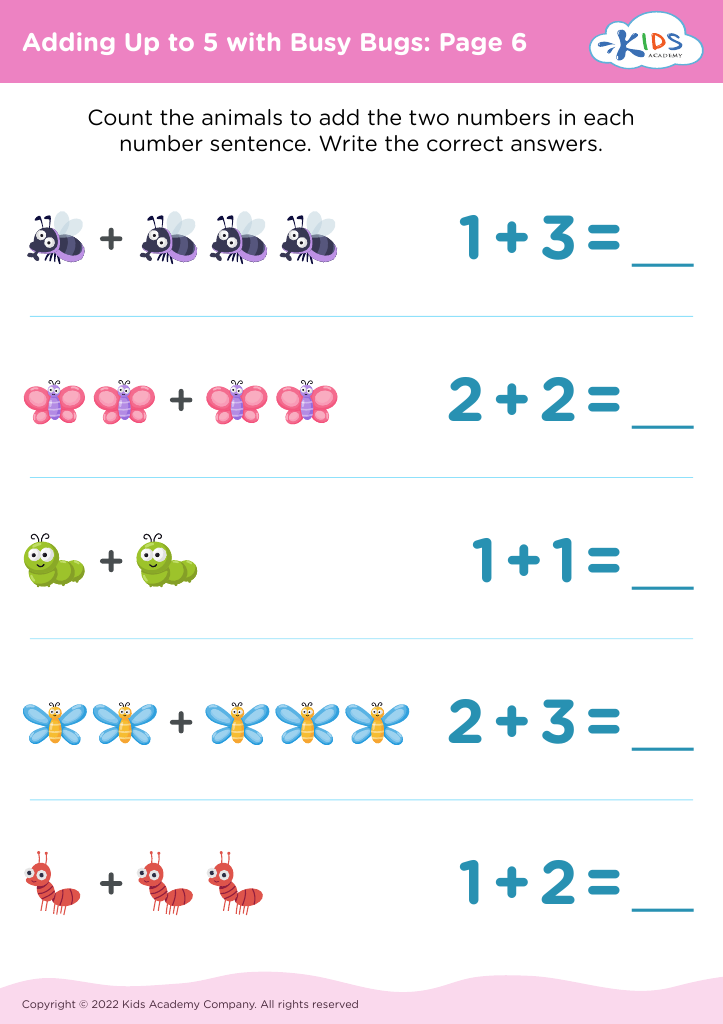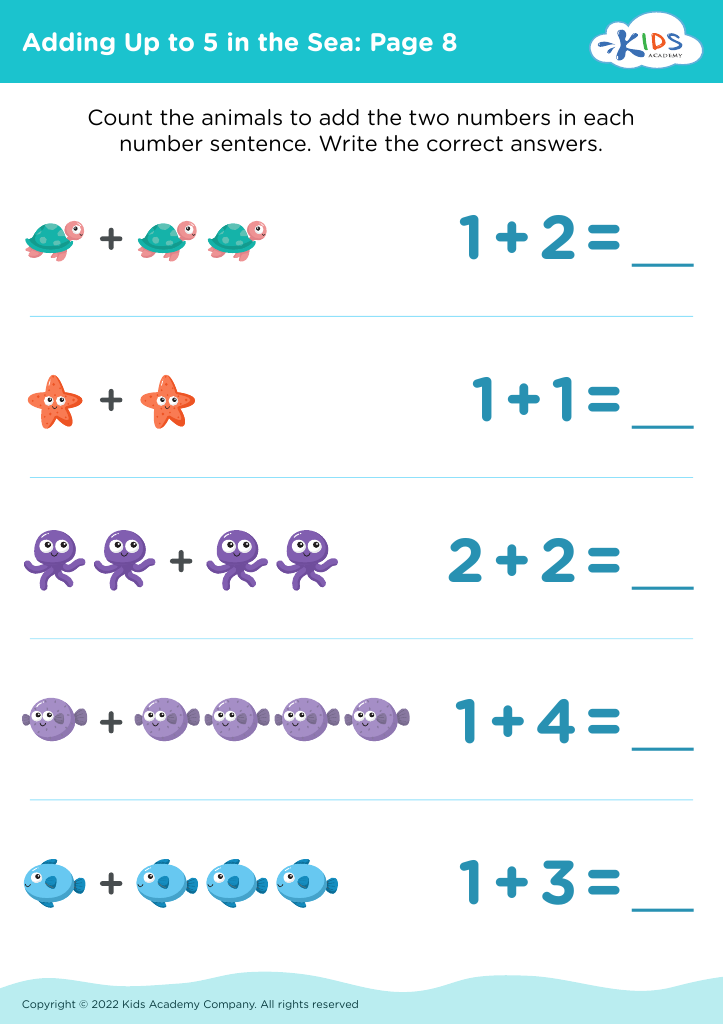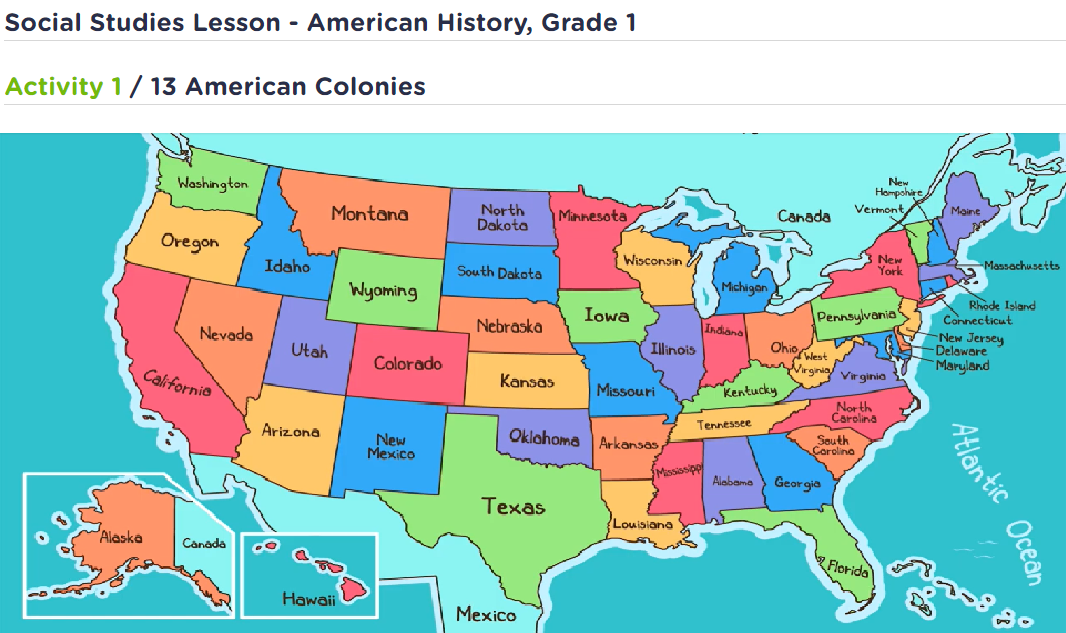Basic arithmetic comprehension Math Worksheets for 3-Year-Olds
4 filtered results
-
From - To
Discover our engaging Basic Arithmetic Comprehension Math Worksheets tailored specifically for 3-year-olds! Designed to spark curiosity and enhance foundational math skills, these worksheets introduce young learners to essential concepts like counting, addition, and subtraction in a fun and interactive way. Each worksheet uses colorful visuals and relatable scenarios to support comprehension and keep kids motivated. Perfect for teachers and parents aiming to create a nurturing learning environment, our resources encourage cognitive development through playful learning. Help your child develop a love for numbers and build strong math fundamentals with our comprehensive collection of worksheets. Start their mathematical journey today!
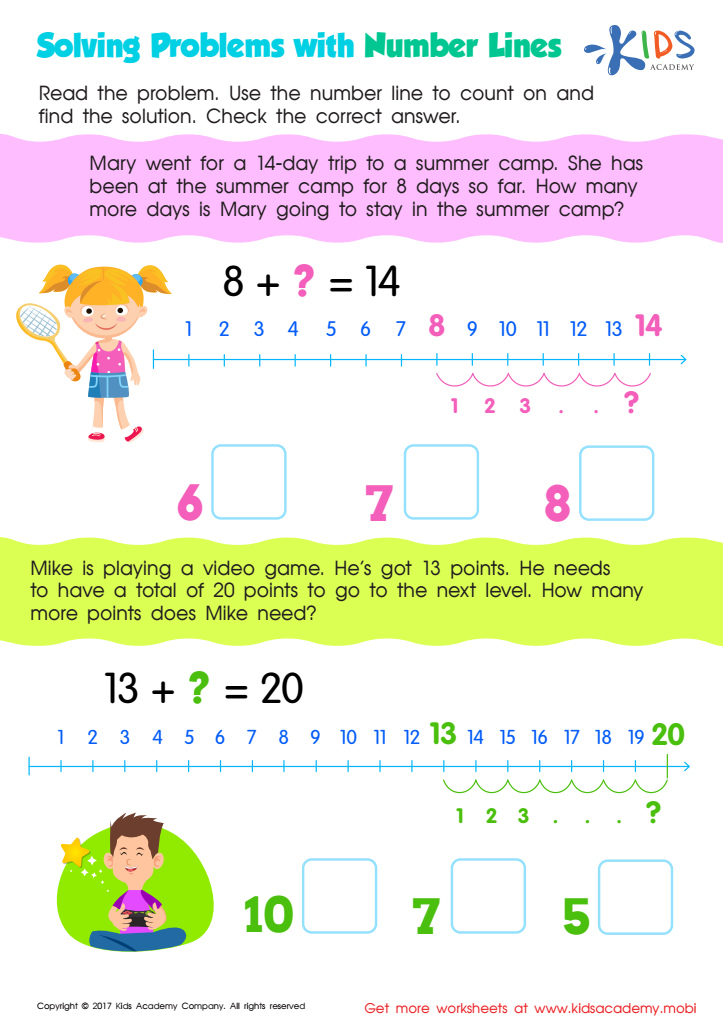

Solving Problems: Number Lines Worksheet
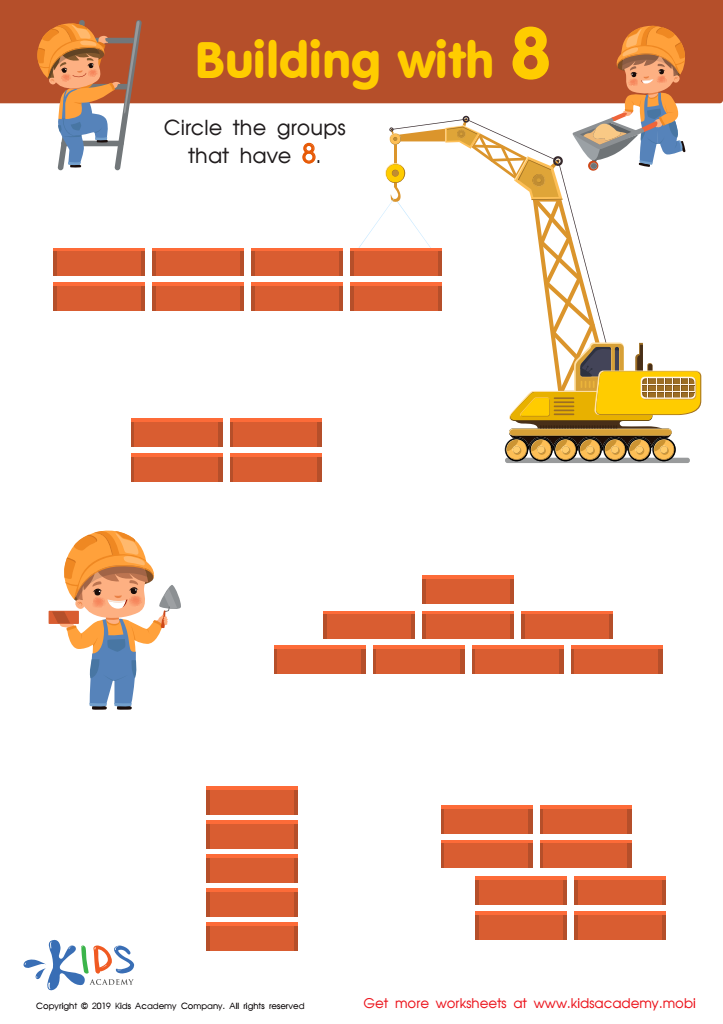

Building with 8 Worksheet
Basic arithmetic comprehension is essential for 3-year-olds as it lays a strong foundation for future learning in mathematics and critical thinking. At this age, children are naturally curious and eager to explore the world around them. Introducing basic concepts such as numbers, counting, and simple addition or subtraction promotes cognitive development and enhances their problem-solving skills.
Parents and teachers play a crucial role in fostering this early mathematical understanding. Engaging children in activities like counting objects, sorting shapes, or playing math-related games makes learning both fun and meaningful. These activities not only build numerical awareness but also encourage language development as children articulate their thoughts and understand instructions.
Furthermore, developing arithmetic comprehension can boost self-esteem in young learners. When they grasp basic math concepts, children feel empowered to tackle challenges. Early engagement helps demystify math, making it less anxiety-inducing as they advance in school.
Moreover, foundational skills acquired through arithmetic comprehension extend beyond mathematics; they support overall academic success. By prioritizing early numeracy skills, parents and teachers contribute to well-rounded development, preparing children for a positive educational journey and lifelong learning. Investing time in these early interactions fosters a culture of inquiry, curiosity, and confidence in young learners.
 Assign to My Students
Assign to My Students
